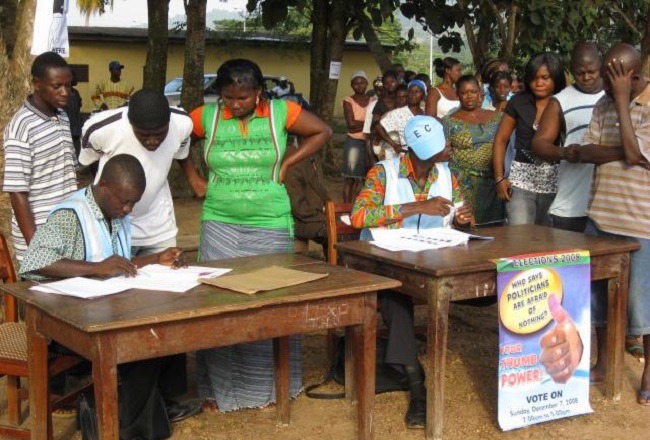Worrying signs for Ghanaian democracy

Photo: Peter Lewenstein, BBC World Service
Elections in Ghana are usually clean and peaceful affairs, characterised by reasoned political argument. Nevertheesless, events in the run-up to the elections on 7 December raise important questions. Nordic Africa Institute (NAI) head of reasearch Victor Adetula discerns dark clouds in the sky.
In 1957, Ghana became the first sub-Saharan African state to achieve independence from the British. It was a beacon of hope for the rest of the continent and President Kwame Nkrumah was one of the most popular African leaders of the day. However, after a couple of decades of hope and aspiration, Ghana, along with many other African countries, fell into deep debt and experienced a military coup in the mid-1970s.
Ghana only managed to regain stability in the beginning of the 1990s when it embarked on a number of economic and political reform programmes. Since 1992, Ghana has held six elections, and unlike in many other African countries, violence has not been evident in Ghana’s electoral process.
“Power has even changed hands without trouble, as opposed to the common experience of incumbents refusing to accept defeat. In this sense, Ghana is a model of democracy in Africa,” Adetula says.
Elections are not enough
However, during recent fieldwork in Accra and Kumasi he noticed that people are discontented with the elites of the society. The economy is not performing well, to the detriment of the common people, yet at the same time elites appear to enjoying the wealth of than ever, a sign of increased inequality which is not unrelated to a wide spread of official corruption.
However, during recent fieldwork in Accra and Kumasi he noticed that people are discontented with the elites of the society. The economy is not performing well, to the detriment of the common people, yet at the same time elites appear to enjoying the wealth of than ever, a sign of increased inequality which is not unrelated to a wide spread of official corruption.
“The citizens are no longer satisfied with just having free and fair elections. Now they demand good governance and wish to hold leaders accountable for failing to deliver public services,” Adetula notes.
Worringly reports
In the last election in 2012, the margins were very tight between the two dominant parties, National Democratic Congress (NDC) and New Patriotic Party (NPP).
In the last election in 2012, the margins were very tight between the two dominant parties, National Democratic Congress (NDC) and New Patriotic Party (NPP).
A similar scenario seems likely this year since the two main parties are both strong and popular on the ground. The outcome is not easily predictable and the results can go either ways. Worryingly, there have been reports of hate speeches and violence by politicians and their supporters during election campaigns and political party rallies.
“People are frustrated, and ill-disposed politicians can exploit that sentiment. In addition, the electoral commission has disqualified some presidential candidates from contesting this year elections for reasons that their supporters consider trivial. This development can fuel further discontent,” Adetula observes.
Law abiding citizens
Still, Adetula does not want to cry wolf. Ghana has never experienced the sort of post-electoral violence common elsewhere, for instance in Nigeria and Kenya. In fact, he rates the citizens of Ghana as being highly civil, responsible and generally law abiding.
Still, Adetula does not want to cry wolf. Ghana has never experienced the sort of post-electoral violence common elsewhere, for instance in Nigeria and Kenya. In fact, he rates the citizens of Ghana as being highly civil, responsible and generally law abiding.
“When l was there, the pump price of petrol increased suddenly. If that had happened in Nigeria, there would have been protest and demonstrations in the streets. In Accra, people instead said: well it’s soon election time, then we can punish those responsible for this. This is evidence of the peaceable outlook of the Ghanaians and their faith in electoral democracy,” Adetula concludes.
Johan Sävström

